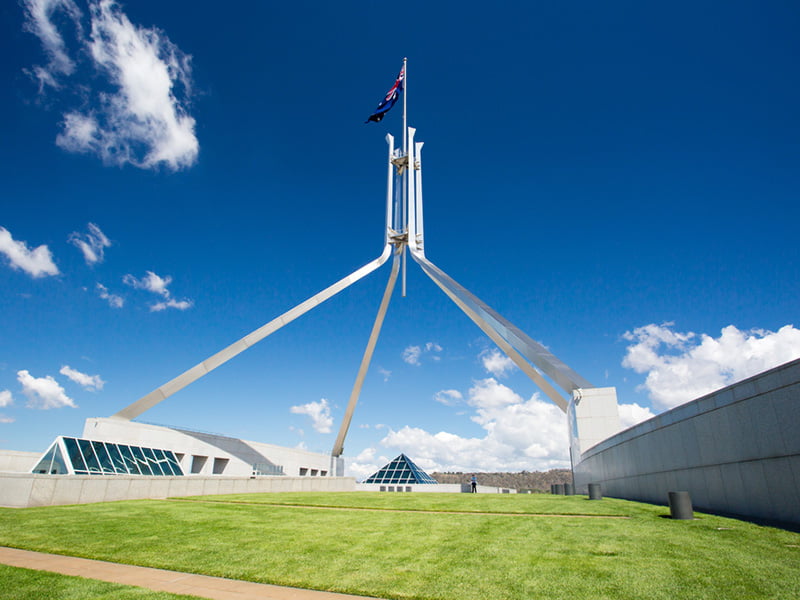It has been widely reported that the MyGov update will take on a social media Facebook like look and features. The ‘beta’ version certainly has a Facebook vibe to it.
Before examining the details of this, it is important to remember that in a democracy, there is a sacred compact between citizens and government. That compact is based on trust and transparency.
When the systems of democracy and servicing are so influenced and entangled by a paradigm such as Facebook, civil society and the welfare of citizens are at risk. Let there be no doubt about what is unfolding and the risks that are in play.

Firstly, let’s have a look under the covers at the MyGov update Facebook look-alike.
I have a fairly extensive knowledge of the underpinning architecture and servicing components across government. What is described in the “MyGov Update” procurement requirements document is exceptionally complex and to be honest, horrifying.
This is no re-skinning exercise.
The requirements document itself admits as much: “MyGov update platform requires a relatively complex ICT Component Model to support delivery”.
What is described is breath-taking in its expansiveness. This goes some way to explaining – though not justifying – the eye watering $28 million paid to Deloitte for only six months’ work on the MyGov update.
There has already been commentary regarding the perceived lack of transparency from a procurement perspective, and whether ‘open tender’ is actually only open to ‘invited sellers’.
One thing is for sure, given the expansiveness of the MyGov ‘update’, $28 million will be a rounding error in the final price tag.
Exacerbating the complexity of the program, is a public sector workforce that has been depleted of capability over decades and now utterly reliant on major consulting firms and subject to their influence.
Let’s take a closer look. The requirements document talks about context awareness; artificial intelligence; chatbots; machine learning; cyber security; and integration services.
Each of these rapidly advancing new capabilities requires an equally matched capability and governance within government and a deep engagement with civil society. None of which is evident.
Also mentioned – described as ‘Service Connect’ – is an emarket for citizens to find and transact with accredited providers. This provider market is economically massive with the potential to impact the Federal Budget – tens of billions of dollars annually flowing through this market providing funded services to people who receive aged care and NDIS packages.
Stuff this up and see what happens.
This is an area I care deeply about having led the strategy and design leadership of the NDIS emarket initiative to facilitate the interaction between disability services providers and NDIS funded participants.
If there is not a flashing red flag on this part of the MyGov update, then there should be.
And this behemoth strategy is dependent on the mega $200 million GovPass digital identity program, already plagued with design and security concerns.
A further serious service delivery and governance mine-field relating to Facebook, is the extent to which service delivery operations are already deeply entangled with Facebook.
Most government agencies – at all levels of government – have a Facebook presence. And for many government agencies, much much more than just a presence.
There is a fundamental question about how dependent government service delivery already is on Facebook.
Continuing the MyGov theme, Facebook is littered with imposter MyGov Facebook accounts; closed official MyGov Facebook accounts; and – wait for it, MyGov pages automatically generated by Facebook.
Put the MyGov Facebook look-alike onto Facebook and there will be utter chaos.
Facebook is a platform that has been used to interfere with democratic processes; is threatening to ban news content in Australia; has streamed horrific terrorist, child exploitation and human rights abuses; and is facing Federal Court proceedings relating to serious and repeated breaches of Australian privacy law.
Every interaction an Australian citizen – and non-citizen – has with the Australian Government on Facebook, generates incredibly detailed and personal intelligence about the interaction. We know this from the Cambridge Analytica example.
Even if a person has deleted their Facebook account, an interaction with the Australian Government still generates incredibly detailed intelligence. Your device; where you are; browsing and scrolling; who you are connected to and by your connections, your interests and phobias.
Through the entangled servicing arrangements via social media, Facebook has sophisticated intelligence into government service delivery, democratic pressure points, and the Australian people.
Given the Government’s aggressive regulatory battle with Facebook, underway by the Australian Competition and Consumer Commission and the Australian Information Commissioner, it is unfathomable that government agencies should continue with a Facebook presence.
But can they actually shut down their Facebook accounts without disrupting serve delivery exposes the serious ethics and trust issues in play.
It is seriously concerning that the regulatory and ‘transformation’ arms of government appear to be totally out of sync in one of the most fundamental challenges confronting society and democracy.
Civil society – and not just global tech and consulting firms – needs to be convinced as to why the Australian Government wants to look like Facebook with a smorgasbord of Facebook-like intrusive intelligence capabilities.
Marie Johnson was the Chief Technology Architect of the Health and Human Services Access Card program; formerly Microsoft World Wide Executive Director Public Services and eGovernment; and former Head of the NDIS Technology Authority. Marie is an inaugural member of the ANU Cyber Institute Advisory Board.
Do you know more? Contact James Riley via Email.


Well said, Marie.
An outstanding article, clearly outlining the risks and educating the reader. Thank you.